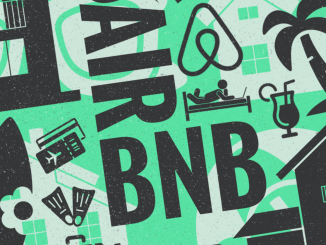
What is “Techlash”?
Due to the rapid development of the technology, in a world where the Internet pervades everyday life, the platform-based society has gradually taken shape and took over the citizens’ daily life. Such intangible society can provide internet consumers with life infrastructure. Although it looks like convenient and creative, the technology from this kind of society also brings a problem that is public concerns. In the Internet ecosystem of western countries, there is Big Tech leading the public and other small tech companies including Alphabet-Google, Apple, Facebook, Amazon, and Microsoft (Dijck et.al, 2018). As the monopoly power, the public has produced a strong and wide negative reaction of the growing power and influence on large technology companies. It is a term named ‘techlash’ defined by The Economists describing this new phenomenon. The discontent derives from consumers who lose trusts from Big Tech and the government who is diminished power (King, 2019).
Video 1. “Why Big Tech’s Monopoly Power Needs to be Urgently Checked” by NewsClickin is licensed under CC BY 3.0.
The social problems caused by techlash are gradually expanding. Big Tech is trying to address but there is a slight use. According to the new contract for the Web (Web Foundation, 2019), to build a normative online society, governments, tech companies, and citizens should all contribute. The following will focus on public concerns behind the techlash, how three parties respond positively.
The public concerns behind Techlash
1. Tech monopoly
In the digital industry, big tech as already obtained a near-monopoly position in their own global market (Dijck et.al, 2018). In addition to big tech in US market, China’s Tencent, Alibaba, Baidu and JD.com also dominates its media. They are all in individual market for communication, searching engine, warehouse and offering. In the US digital ecosystem: Amazon accounts for 50% of online purchases, Facebook owns 80% of mobile social traffic, Google occupies 81% of search engine market and 97% of mobile search, and Facebook and Google grab over 60% of digital advertising market (Hendrickson & Galston, 2017; Mitroff & Storesund, 2020). Through these giant data, it obviously reflects the market influence power of the big tech which is leading the development of digital industry. Also, as for competitors, the remaining space is too small to allow to compete, which might make the market lack of fairness and innovation.
2. Voices for hate speech

Figure 2. “No violence no hate speech” by faul is licensed under CC BY 2.0
The freedom of speech provides people who spread hatred (Web Foundation, 2019). Netizens have rights to express their opinions in the community. They may care little about the consequences of what they say and instead emphasize their attitude with enthusiasm. Nor does its morality and legality serve as a starting point for them considering what to post online. On this issue, what need to be pay attention to is the relationship between online inflammatory speech and the actual violence. In Germany, the far-right Alternative for Germany party sent posts about anti-refugee on Facebook, and then resulted in the increase of attacks on refugees (Laub, 2019). Technology companies fuel acts of hatred and violence because there is no timely regulation. Not only that, but it will raise political questions. 17% of users shown that social media helped change their opinions of a particular political candidate (Anderson, 2016).
3. Increasing spread of misinformation

Figure 3. “Fake News – Computer Screen Reading Fake News” by mikemacmarketing is licensed under CC BY 2.0
Social media became the main platform for producing and spreading misinformation (Atkinson et.al, 2019). It is often hard for platform users to analyze whether the information is true or false when in the context of the ubiquity of various information. Importantly, Facebook’s employees wrote to Zuckerberg, “there are differences between free speech and paid speech” (Mitroff, 2019). Two kinds of information might mislead the public to the truth. Also, it is not only companies that have the right to disseminate information but also audiences, which means that misinformation can spread from more than one source. In addition, the algorithm of search engine can cheat on customers when they search for an entry. It deliberately amplifying the type of content that allows users to participate which will arouse viewers’ instinctive reaction, so that increase its transmission amount (The Guardian, 2019). Lies spread faster than the truth (The Guardian, 2019). This explains why technology companies are in to create fake information as lies are more attractive.
4. Individual privacy

Figure 4. “atelier-data-privacy” by DJANDYW.COM is licensed under CC BY-SA 2.0
Public concern about data security is the most typical problem of platformization. Both data of content and users can be collected and controlled by the remote devises or applications (Dijck et.al, 2018). It will adopt technology to analyze personal portraits of internet consumers so that to meet their requirements. Such ‘monitoring’ looks like to offer better services for netizens. However, indeed, big tech relies on the commercial mode of data sharing to provide data for the third party (Dijck et.al, 2018). In the platform society that user valuation and data monetized, technology companies are more interested in the exchange between service and user data (Mitroff & Storesund, 2020). This violates Personal Data (privacy) Ordinance and conflicts with the original values of the platform operators. But once people tick the consent box, it means the platform can collect and use their data at will (Mitroff & Storesund, 2020). As a result, personal information has been spread to other companies’ databases without knowing what they are using it for.
Any possible contributions by Government, Tech companies, and Public?
Ideally, creating public values for public benefits is a sharing responsibility of all social behaviors – civil society organizations, the public and the government (Dijck et.al, 2018). All three parties should contribute to building a regulated and peaceful Internet society. Tech companies themselves are best placed to take the lead in regulation with their strong leading role. While social media companies have taken some steps to reduce presences of hate and conspiracy speech on the platform, these measures are mostly superficial (The Guardian, 2019). It cannot solve the root problem, and they intend to keep posts alive for monetized views when they face popular but polarizing posts. In capitalism, big tech is even more powerful than the government. Some political leaderships advice adopting Antitrust laws to restrain big Tech’s power so that ensure a fair competition in the market (Baer & Chin, 2021). Whereas this is controversial as corporate lobbying has always been there. This is how tech companies maintain their monopolies (Popiel, 2018), and its revolving door promotes fluidity between media elites and national interests. There is mutual benefit between the two. As the citizen, becoming aware of the security of personal privacy is a starting point for creating value.

Figure 5. “Regulation Key” by Mike Lawrence is licensed under CC BY 2.0
According to Web Foundation (2019), what should to do?
Government:
- Must translate laws and regulations for the digital age.
- Set up Internet surveillance. When private sector interests threaten the public interests, the regulators such as civil servants or elected officials will act to protect the open web.
- Establish clear laws to protect user rights, privacy, and freedom
- Reenact a new antitrust law for ensuring a fair market competition.
The new rules include a ban on favoring one’s own products and services over competitors, a ban on using data collected from its own platforms to develop competing products, and a shift in the burden of proof in merger cases to big tech companies (Reardon, 2021).
- If possible, establish a law for honest advertising.
Tech companies:
- Should not establish false platform values to deceive netizens.
- Should not abuse user data and spread misinformation of products for short-term profits.
- Hire enough monitors to actual supervise. They must stick to the facts and remove these lies and conspiracies from platforms (The Guardian, 2019).
- Create an algorithm which can automatically delete entries that might cause unrests (The Guardian, 2019).
- Reduce times of lobbying to maintain creativity and competition in the market.
Public:
- Should not publish controversial posts while ensuring freedom of speech.
- Actively elect the politicians who will defend their interests.
- Check the platform protocol carefully.
Conclusion
Social actors should contribute to the public concerns caused by Techlash, including the lack of fair competition market, hatred and violence caused by freedom of speech, the spread of misinformation, and the infringement of users’ personal interests. This is an ongoing and complex issue because it involves different companies and different social roles.
Reference List
Anderson, M. (2016, November 7). Social media leads some users to rethink a political issue. Retrieved October 14, 2021, from https://www.pewresearch.org/fact-tank/2016/11/07/social-media-causes-some-users-to-rethink-their-views-on-an-issue/
Atkinson, R. D., Brake, D., Castro, D., Cunliff, C., Kennedy, J., McLaughlin, M., . . . New, J. (2019, October 28). A policymaker’s guide to the “Techlash”-what it is and why it’s a threat to growth and progress. Retrieved October 15, 2021, from https://itif.org/publications/2019/10/28/policymakers-guide-techlash
Baer, B., & Chin, C. (2021, June 01). Addressing big tech’s power over speech. Retrieved October 15, 2021, from https://www.brookings.edu/blog/techtank/2021/06/01/addressing-big-techs-power-over-speech/
King, F. (2019, July 11). What is Techlash and what does it mean for the digital industry? Retrieved October 15, 2021, from https://www.balticapprenticeships.com/blog/what-is-techlash-and-what-does-it-mean-for-the-digital-industry
Laub, Z. (2019, June 7). Hate speech on Social Media: Global Comparisons. Retrieved October 14, 2021, from https://www.cfr.org/backgrounder/hate-speech-social-media-global-comparisons
Mitroff, I. I. (2019). Technology run amok: Crisis management in the Digital age. Cham: Springer International Publishing. doi: https://link-springer-com.ezproxy.library.sydney.edu.au/book/10.1007%2F978-3-319-95741-8#about
Popiel, P. (2018). The Tech Lobby: Tracing the Contours of New Media Elite Lobbying Power. Communication, Culture & Critique, 11(4), 566–585. https://doi.org/10.1093/ccc/tcy027
Reardon, M. (2021, June 15). What the new antitrust legislation could mean for big tech… and you. Retrieved October 15, 2021, from https://www.cnet.com/news/heres-how-new-antitrust-legislation-could-affect-big-tech-and-you/
The Guardian. (2019, November 22). Read Sacha Baron Cohen’s scathing attack on Facebook in full: ‘greatest propaganda machine in history’. Retrieved October 15, 2021, from https://www.theguardian.com/technology/2019/nov/22/sacha-baron-cohen-facebook-propaganda
Van Dijck, J., Poell, T. & de Waal, M. (2018) The Platform Society. Oxford: Oxford University Press, pp. 5-32. Retrieved from October 13, 2021, from https://oxford-universitypressscholarship-com.ezproxy.library.sydney.edu.au/view/10.1093/oso/9780190889760.001.0001/oso-9780190889760-chapter-2
Web Foundation. (2019, March 29). 30 years on, what’s next #fortheweb? Retrieved October 14, 2021, from https://webfoundation.org/2019/03/web-birthday-30/

This work is licensed under a Creative Commons Attribution-Noncommercial-Sharealike 4.0 International License.


